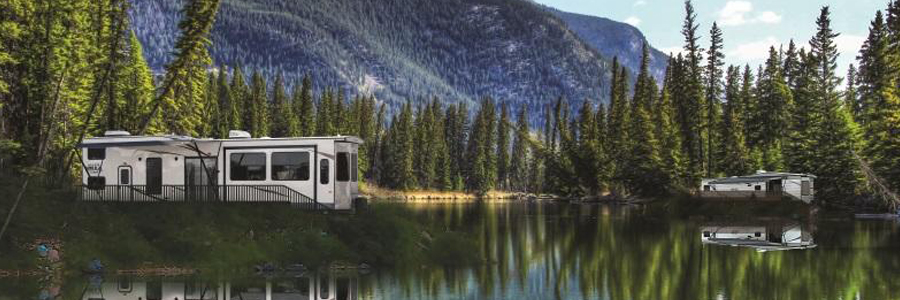Boondocking and Dry Camping

RV parks can be a lot of fun, but they don’t always give you the best access to the landscape. If you’re the type of person to enjoy the solitude of nature, you might be looking for an experience that’s a little more isolated and a little more natural. If so, boondocking might be right for you.
Boondocking, alternatively referred to as dry camping or dispersed camping, is a practice defined by camping away from established campgrounds and campsites. The benefit for RV owners is they can still have all the modern amenities provided by their RV, but they don’t have to deal with any neighbors, traffic, garbage, or other campground woes.
Read on to learn more about boondocking, but make sure you stop by Country Camping. We’re located near Kelowna and Kamloops, British Columbia, and we proudly serve the areas of Salmon Arm and Vernon, British Columbia.
Learn the Rules
Canada is a vast country, and the majority of its unsettled land (referred to as Crown land) belongs to the public. The majority of this land is open for boondocking, with some important exceptions.
As a general rule, you should be able to camp on Crown land for up to three weeks at a time before you’ll need to move. It’s worth contacting the local authorities about the area where you plan on camping to make sure it’s open to the public. Some lands will be shut down for things like logging, mineral extraction, or nature conservation. You should also ask about local regulations regarding things like firearm usage, alcohol consumption, and waste disposal, and motor vehicle usage. All of these can be restricted in certain areas. During certain months, open flames might be restricted due to forest fire concerns. Your best bet is to call your local authorities and learn about the regulations governing the specific area where you want to camp.
Energy: Solar Vs. Fossil Fuel
With all the appliances and features offered by modern RVs, you’ll need some form of energy system to keep them running. Most boondockers use fossil fuels, solar energy, or some combination of the two.
Solar energy is beneficial because it’s sustainable and will provide you with lots of free energy so long as the sun is out. The drawback is building a substantial solar system can be somewhat expensive, and during the darker months, you might not get as much energy as you’d like.
Fossil fuels are convenient because they are readily available and are designed to work with most modern RVs. For example, everything from the refrigerator to the furnace is often powered by propane in many modern RVs. The appliances that aren’t powered by fossil fuels can usually be powered by a generator. The drawback with fossil energy is that you can only carry so much, which might require you to make trips back to civilization to refill your supplies.
Handy Gadgets
When you’re that far away from civilization and normal infrastructure, a few gadgets can make your life a lot easier. Dealing with human waste is always a problem when you’re not connected to the sewer system, but a composting toilet will give you the ability to manage the waste without having to deal with a blackwater tank.
The more labor-intensive way to get clean water is to use a backpacking hand pump filter. If you have enough solar energy, a countertop vapor distiller will let you distill your own fresh water using just about any source you find. Finally, make sure you pick up a GPS distress beacon. These emergency devices will allow you to send a beacon to emergency responders with your exact location if anything goes wrong.
Boondocking can be a lot of fun if you make a plan and prepare correctly. When you’re looking for the best RV for your first boondocking trip, stop by Country Camping. We’re located near Kelowna and Kamloops, British Columbia, and we proudly serve the areas of Salmon Arm and Vernon, too.